While your volleyball club can put a lot of time and effort into securing the right facilities and hiring the right coaches, your club’s main objective is likely to develop athletes’ volleyball skills.
This might sound simple, but a lot of planning needs to occur to ensure your players are learning the right skills – at the right time – and to help them achieve their volleyball goals. This starts with creating a player development plan. These plans list what skills players should develop at various levels, what strategies they should learn at each age, and what long-term goals should be established for players to keep improving their abilities year after year.
Get tips on how to create volleyball player development plans for your club below.
Decide What Skills to Teach at Each Age Level
One of the player development plans’ primary objectives is to determine what skills players should learn at various ages. It also helps clubs determine how much time coaches should dedicate to enhancing individual skills versus team skills, according to JVAVolleyball.org.
Establishing player development plans can ensure athletes are increasing their abilities without putting too many expectations on them too early. These skills should include on-the-court skills, fitness and nutrition knowledge, and leadership skills.
On-the-Court Skills
Volleyball players should focus on the following on-the-court skills at each level:
- 12 and under: At this level, especially for those younger players, it’s crucial to keep drills fun while learning and improving their abilities. Coaches should incorporate games into teaching the fundamentals of passing, serving, setting, and hitting. TeamUSA.org recommends focusing on the receive-set-attack approach at all age levels. Fit2Finish.com adds that it’s essential to emphasize form and technique at this age, so athletes learn good habits while they are young.
- 14 and under: Middle-school aged athletes should expand on their basic skills by adding more footwork, improving their body positioning when getting to and making contact with the ball, and increasing their aim and strategy to place the ball in specific locations. Athletes at this age should also be able to develop their ball movement skills to set up scoring opportunities and improve their defensive abilities.
- 18 and under: While older athletes should continue to develop their fundamental skills of passing, setting, hitting, and serving, at the high school level players should also focus on enhancing their strategic skills. Athletes should learn how to read their opponent and identify their strengths and weaknesses, according to Fit2Finish.com. If athletes want to play at the collegiate level, it’s essential for them to enhance their overall game – both physically and mentally.
Fitness and Nutrition Knowledge
Players need to be well-rounded athletes that focus on their on-the-court abilities as well as their overall fitness and nutrition levels at each age:
- 12 and under: It’s crucial to teach young athletes the importance of enhancing their overall fitness level to perform better on the court. This can include instructing them on how to properly warm-up and cool down, how to increase their strength and conditioning, and the importance of eating a healthy, well-balanced diet.
- 14 and under: Volleyball players at this age level can start to focus on increasing their agility skills, speed, and their vertical jumping abilities.
- 18 and under: At this age, players should follow rigorous strength and conditioning programs to enhance their overall athleticism and health. It’s essential to work on their agility and jumping abilities to help them get to balls faster and make better contact. As with younger players, it’s also important for athletes in this age group to eat a well-balanced diet.
Leadership and Team Skills
In addition to enhancing their abilities, players also need to learn to play as a team, develop team strategies, and increase their on-the-court leadership skills:
- 12 and under: It’s important to start to introduce basic team concepts and rules at this age, in addition to some strategies. At 12 years old, athletes might not experience many long rallies during matches that require increased teamwork and communication. TeamUSA.org recommends having players in this age group watch competition amongst older players or even watch matches on TV to show them why the fundamental skills are essential and what they are working towards.
- 14 and under: Athletes in this age group should start to learn the importance of team strategies and skills. It’s also crucial for coaches to watch which players emerge as leaders and to stress the importance of leadership and communication on the court.
- 18 and under: Players at this level should be able to carry out complex team strategies. Those who want to continue playing at the collegiate level should emerge as leaders on the squad and should start mentally preparing for competition at the next level.
Create Long-Term Goals
While it’s important to develop athletes’ skills at each age level, it’s vital to know what long-term goals each player has, such as if they want to play at the collegiate level. Knowing this information while the athlete is working his or her way through the various ranks will help coaches determine how hard to push the player, evaluate his or her skills, and set their goals for each season.
Why Player Development Plans Are Important
Player development plans can help athletes learn new skills and enhance their abilities as they progress through each level. Outlining what will be taught at each age will help establish transparency between players, parents, and the club and will keep athletes striving to improve their game.
About TeamGenius
TeamGenius is a club volleyball player evaluation and development mobile platform built for volleyball coaches and staff.

